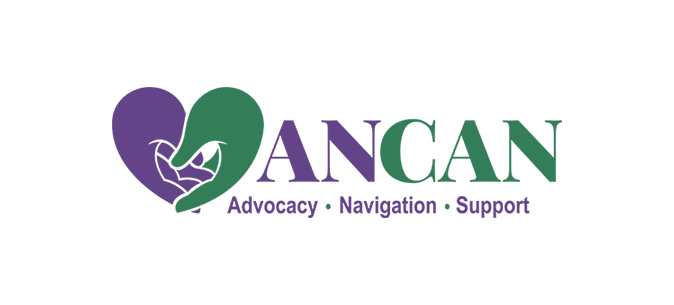
by Rick Davis | Sep 26, 2019 | Cancer Resources, Brain Tumors, Cancer Caregivers, Health Resources, Men 'Speaking Freely', Men's Breast Cancer, Multiple Sclerosis, Prostate Cancer, Women's Breast Cancer
Yet again, our Moderator Peter Kafka offers wise words from his group meting reminder that many of you will find true! Thank you Peter …..
All of us in the AnCan community are volunteers. At this juncture none of us are paid to moderate our calls or assist others in navigation or advocacy with their cancer journey. This might change at some point as finances permit and circumstances evolve, but for now we remain no less passionate or committed to our calling. There are of course benefits to the work we do, and for me one of the great benefits I have come to know is new friendships. The men and women I have come to know through this work in these past five years have made a great impact on my life.
Friendship is an interesting human cultural phenomenon. It is often noted that women tend to form closer and longer lasting friendships than men. Men can become “lone wolves” in society, particularly as we age and our boyhood friendships fall away. It takes work and commitment to initiate and maintain friendships as we grow older and our life purposes change and evolve.
The notion that new and significant friendships can form in the autumnal days of our lives is a foreign concept to most men. The idea that there are men who are committed to being of help to perfect strangers who are trying to find their way through the weeds of prostate cancer decisions can no doubt seem suspicious. “What’s the catch?” Simply put, there is no catch! For some unknown reason this disease seems to have propelled quite a few of us into a place where we just want to help others as best we can.
I always look forward to these on-line/telephone AnCan meetings. Even though most of us are separated by many miles and may never meet each other in person, strong bonds are sometimes formed and significant friendships result. Maybe I should end this with a string of clichés; We are not ships passing in the night – but rather all in the same boat and pulling for each other.
We at AnCan through our online/telephone weekly support meetings and advocacy work hard as peers to provide whatever support and backup as we can in your journey with prostate cancer. But we don’t claim to have all the answers. We encourage you to share your experiences. We learn from each other. Keep connected, information is power! We are always there for you.
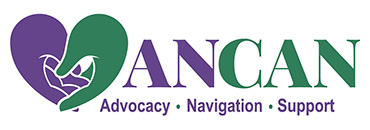
by Rick Davis | Jul 22, 2019 | Advocacy, Brain Tumors, Cancer Caregivers, Cancer Resources, Health Resources, Men's Breast Cancer, Prostate Cancer, Recent News, Women's Breast Cancer
Does cancer treatment compromise your hearing? …… as peer navigators, some of us have been asked that question. I certainly have by my good buddy Dennis and others who attend our group.
While doing a little due diligence for our upcoming The Language of Cancer webinar next Monday, July 29, I ran across an excellent article by Dr. Jane Biehl Ph.D. published on the Cure Today website titled “Cancer Survivors: What’s In A Word?” – worth a read, especially if you plan to attend the webinar! When I reached out to Jane to invite her to join our panel, I learnt that her hearing disability would make it very hard to participate in real time since we do not have technology to close caption.
I also learnt that Dr. Biehl has written on the ototoxic effects of cancer therapy … ototoxic literally means ‘poison to the ears’ as you will learn below. Since I knew this was a topic that interests many yet is rarely discussed, I asked Jane if we could publish her article on our blog with an accompanying introduction from her. AnCan is very grateful that she agreed – thank you Jane.
—————————————
I just wanted to let you know how the articles on hearing loss evolved.
I taught Deaf Culture for a number of years and would include a section on ototoxic drugs which literally means “poison to the ears.” I had a list of medicines that caused problems. Chemo is traditionally a big one. I would say to the students that it is better to be deaf than dead, but if there was another chemo that would work to talk to your doctor about it.
Then I was diagnosed with the MDS (Myelodysplastic Syndrome). I was told by University of Case Western Hospital that the medication Revlimid was a game changer, and without this drug I would have been dead ten years ago. It was a fairly new drug. It was oral and I made the mistake of thinking it would not cause the same problems as an IV. It caused several unanticipated side effects including chronic diarrhea, extreme fatigue, and hearing loss.
I was on it for nearly 6 years.
I started to realize that I was missing more and more conversations. When I saw my audiogram I just gasped. It had dropped 25 decibels from severe to profound!
I should mention that this would not happen to everyone. First of all I was already hard of hearing. Second of all I have been on the medication Revlimid longer than most people and have lived longer which is a good thing! I did notify the FDA hoping to have them warn people in their literature.
I then went on more powerful Vidaza shots; and at that time went to the James Center at Ohio State University. They told me they never heard of Revlimid causing hearing loss, but Vidaza did. I had to go on the Vidaza because I was going into leukemia, which is almost always fatal when preceded by MDS. I was on the shots for 2 years until I suffered a rebound effect and was forced to stop. Presently I am on Procrit and Zarxio shots to keep my red and white blood cells count up.
I am now under the care of a wonderful local oncologist plus a specialist at the Cleveland Clinic. He never heard of Revlimid causing hearing loss and there was nothing in the literature. But then I researched further, and it is a derivative of Thalidomide which – guess what – is known to cause hearing loss.
There is some speculation that I may need to go on a future medication for MDS called Luspatercept to be approved in April of 2020 by the FDA. I am of course concerned that this may demolish the rest of my hearing – what little I have left – but I have no choice.
I wrote this article to help other people.In addition to this article published by Hearing Life which is published by the Hearing Loss Association of America, I have written another article. This one is about the impact of losing more hearing and how the world keeps getting smaller and smaller and is to be published in the next year. Interestingly enough, the editor is trying to find an audiologist who is familiar with ototoxic medications and is unable to do so because there is so little on this topic.
Jane Biehl, Ph.D, July 2019
You can read Jane’s article by clicking here Ototoxic Medications – J. Biehl
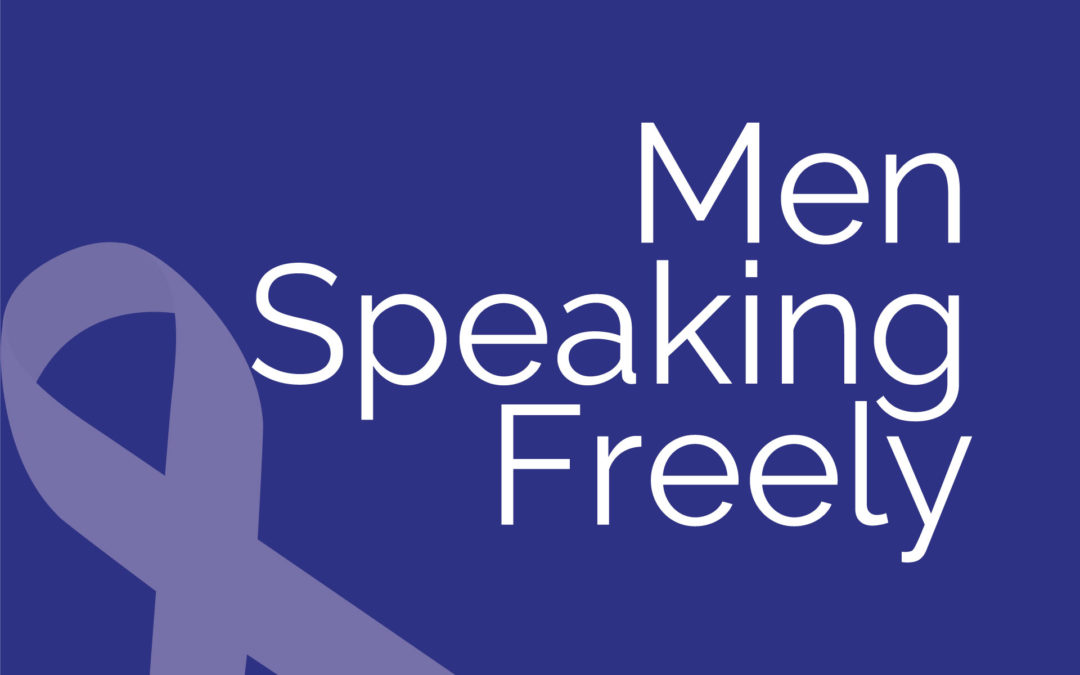
by Rick Davis | Jul 18, 2019 | Health Resources, Exercise, Men 'Speaking Freely', Prostate Cancer, Recent News
Ken Anderson is 58 …. he was diagnosed with de novo metastatic prostate cancer two years ago and has endured chemotherapy, radiation and been on androgen deprivation therapy since February of 2017. One of Ken’s goals has been to maintain as close to a normal life as possible .. and that includes lots of regular hiking and biking in his home city of Phoenix. A native of the Northwest, Ken had long wanted to complete this 15-day Washington State hike and was NOT going to let an absence of testosterone stop him …….
Ken has participated in AnCan’s weekly Advanced Prostate Cancer group since diagnosis. He has also mentored several other younger men initially diagnosed with metastatic prostate cancer; we are very proud of him ….. !! If you would like to follow up with Ken on his experience, please reach out to us at info@ancan.org and we will make the connection.
Ken & Sister at Hearts Lake above tree line (day 9) –

Living the best possible life while dealing with the side effects of ADT – this is true when told you have advanced prostate cancer and that you will need to stay on some form of testosterone lowering drug for the rest of your life to prevent the cancer from spreading and to slow its progression.
Most men ask – what is that going to look like? For me the loss of testosterone was something you just cannot get your head around. The loss of muscle mass and general fatigue come to mind. Living with cancer has changed how I approach each day! Long term plans become six months or less. We all need to clear our minds and try hard to “Live in the moment”!
The Hike…
Moving along the Coast to Rialto Beach (Day 4)
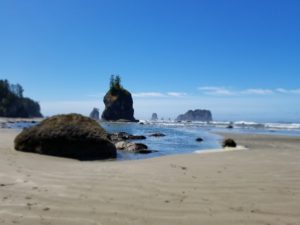
First let it be known that this hike was one I had planned on doing alone. I started thinking about it around the end of this past year, 2018. Knowing full well that building muscle and endurance was going to be an issue while having no testosterone levels. Without question the love of the outdoors and hiking was going to help push me along. Approximately 150 miles was planned with two segments (a coastal area and then an area of rain forest and above the tree line); the first part being 38 miles along the coast and the second 107 miles from the Hoh Rainforest trailhead to my uncle’s home in Brinnon, Washington.
I cannot remember when my little sister asked if she could go along but I remember thinking, “She has no idea what a yes reply might mean”. After all she had never hiked or camped for any period of time and for sure never carried 45 pounds of camping gear and food plus a bear canister on her back for 12 days. I was concerned but said yes, knowing full well that she would need to start training and get some good gear.
The fact that she wanted to go was beautiful but it did change how I would approach the hike. Getting ready for the hike became the mission and planning …… well let us just say I wanted to provide a couple of outs in case of bad weather or a change of mind. As the months passed and we were close to the departure date it became clear that she was taking the hike serious with training and gear acquisition. In my head I was thinking she may just hike my butt into the ground and for this reason I too started to train like crazy. The fact that my little sister was making such great efforts forced me to step up my own game and get myself in shape.
Let it be known that getting up off your butt and pushing yourself to extremes is still possible for anyone on ADT. Live in the moment and work hard to live as full a life as possible.
Hoh Rainforest (day 7)
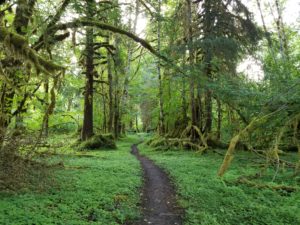
The Hoh Rainforest is amazing… it is an easy hike and can be done by anyone. Located just a short drive from Forks, Washington in the northwest corner of the state, it is relatively flat; it has the most amazing green moss covered trees with ferns and grasses that appear from a distance to be a soft and inviting blanket. For sure it was the most pleasant hiking part of our trip with ideal camping locations along the Hoh river and great fishing. Along the trail we were able to spot small herds of elk, and deer in the early morning around our campsites plus beautiful views of Mt Olympus off in the distance when the thick pacific mist lifted.
Mt Olympus (day 9)
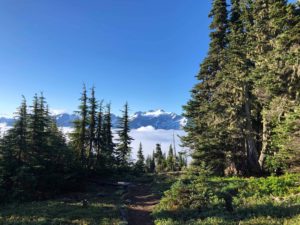
After the relative ease of hiking in the rain forest with wide open gravel walkways designed to allow for 100’s of day hikers, we started the more difficult part of the trip. Our first day – 4850 feet up the mountain in just five miles, and then another 4 miles along some of the narrow passages of the Seven Lakes area. This part of the trip was a challenge. It’s truly a difficult hike and one that requires your complete attention. A missed step and you could end up at the bottom of the mountain. The views the next morning were some of the most amazing above tree line views i have ever seen. Mt Olympus and a string of others all uncovered in early morning.
Mtn Townsend along the East Side (day 14)
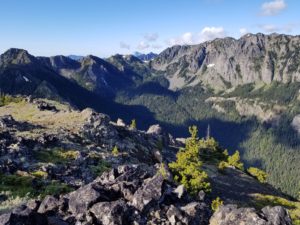
Just north of Brinnon, Washington along the area known as Hoods Canal is Mt Townsend. It looks down on the Canal, Mt Rainier, Victoria BC and the Straits of Salish Sea; and I was lucky enough to view it all on a sunny day.

A Beautiful Hike.
Hope to make the time for a couple more……..
Ken Anderson …..
July 2019

by Rick Davis | Jul 4, 2019 | Advocacy, Cancer Caregivers, Cancer Resources, Health Resources, Prostate Cancer, Recent News
In the spirit of an earlier post that suggests you should not believe everything you read, we are providing the research paper to this CNN report from last week on commonly prescribed drugs and the incidence of dementia. This study is typical of large epidemiological reviews of medical data bases, not necessarily explaining cause, but observing correlations. You make your own deductions ……
And just to point out, this research focuses on anticholinergic drugs alone, although the CNN piece expands it to other drug classes where there does seem to be additional clinical evidence of long standing – this is not new news!! And before you ask ……
Anticholinergic drugs range from the overactive-bladder agents and the Parkinson’s-disease agents that are known to be strongly anticholinergic, to drugs such as warfarin, furosemide (Lasix, Sanofi-Aventis), hydrochlorothiazide, and ranitidine(Zantac, GlaxoSmithKline), an antireflux drug, that have weaker anticholinergic properties
(Medscape – Anticholinergic Drugs May Increase Cognitive Decline, April 2018).
Several antidepressants, like amitryptiline also fall into this same category .. just sayin’!
On a personal note, I once tried hydrochlorothiazide to control blood pressure, but felt lousy from it so dropped the drug – otherwise I could have been on it for the past several years.
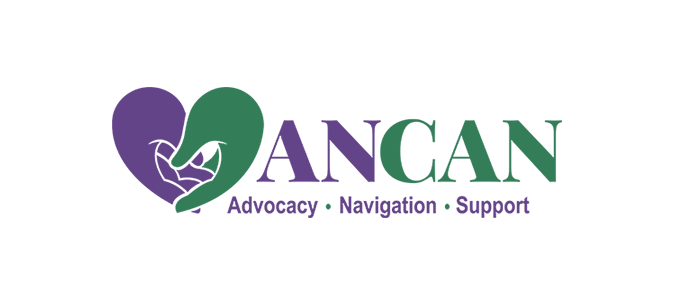
by Rick Davis | Jun 27, 2019 | Uncategorized, Cancer Caregivers, Cancer Resources, Health Resources, Recent News
In this line of work, one of the non-pecuniary benefits is meeting remarkable people … like Jamie Aten Ph.D who I blogged about yesterday. Before we go any further, and if you are wondering what the heck ‘non-pecuniary’ means it goes back to my labor economics classes at Chicago with Sam Peltzman. ‘Pecuniary’ means related to money … and patient advocates don’t see much of that. Ironically, a significant for-profit corporate player in the field of patient advocacy whose stated mission is to help advocates find compensation, asked me yesterday to assist them with an online educational program they are compiling. When I asked if it was compensated, their response was no, however I should be satisfied with building my network and my resume from the ensuing publicity ….. OPM, I guess .. ‘other people’s money!’ But I digress ….
Back to remarkable people, especially Dr. B.J.Miller who kindly serves on our Advisory Board and boasts a TED Talk with more than 9 million views at last count! BJ is a palliative care doc at UCSF where I have had the privilege of working with him since around 2012 – I love the guy! For several men I have introduced to BJ, he has been their lifeline. You have to know BJ was a national class varsity rower (should I declare a bias here?) who was recruited by Princeton; as a sophomore, he endured a life changing injury that cost him three limbs! BJ has the remarkable knack of connecting to people challenged with life threatening disease.
BJ Miller and Shoshana Berger are publishing a book mid-July, A Beginner’s Guide to the End, and last Sunday the New York Times printed an opinion piece by them, Don’t Tell Me When I’m Going To Die …. you’ll be relieved when I say that’s the required reading rather than the book, Folks! BJ and Shoshana refer us to a very simple form called a ‘Prognosis Declaration’ developed by a man called Steve Scheier when he was caregiving his terminally ill wife. It puts YOU in charge of what you want your doc to tell you about your survival prognosis …. and if you give it to your medical team IN WRITING, they will need to abide by it. What a simple concept, but perhaps it can change how you live your life!
And my thanks to Len for blogging ‘Here’s Your Prognosis …’ otherwise I would not have noticed BJ’s opinion piece.
Truly onward & upwards!

by Rick Davis | Jun 20, 2019 | Cancer Resources, Health Resources, Recent News
Many living with serious and chronic disease know how your disease path plays with emotions …… great results lift you, disappointing results send you into a dive – it’s an emotional rollercoaster. My Foundation Medicine Patient Community Council colleague who lives with advanced lung cancer, Peggy Dennis, just penned her latest ride on the COSMIC* blog – buy a ticket to read!
*COSMIC is an online database of acquired mutations found in human cancer. Somatic mutations are those that occur in non-germline cells that are not inherited by children. COSMIC, an acronym of Catalogue of Somatic Mutations In Cancer, curates data from the Cancer Genome Project at the Sanger Institute. Wikipedia.











